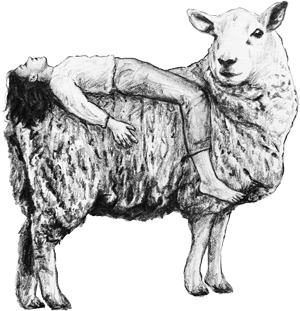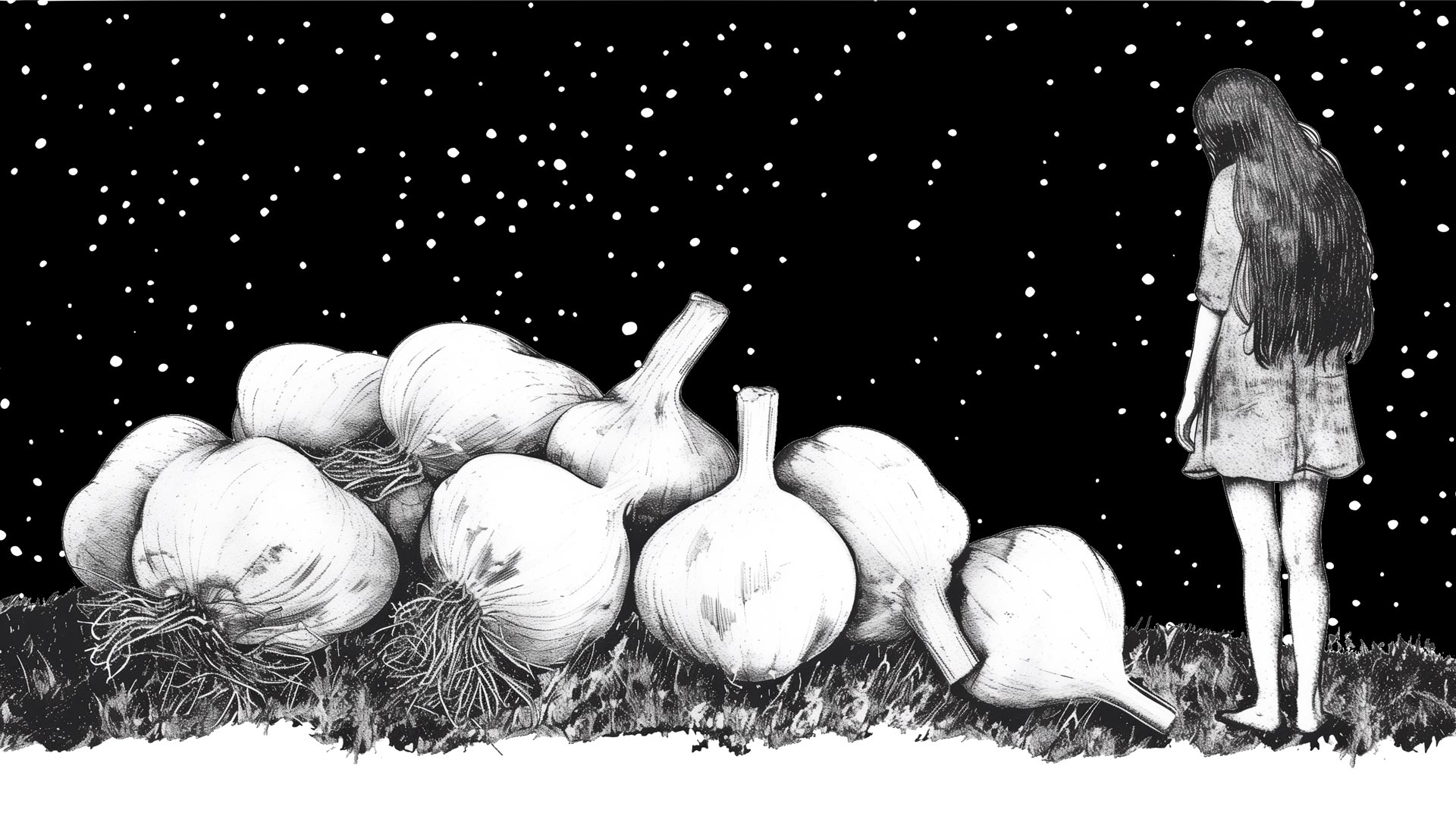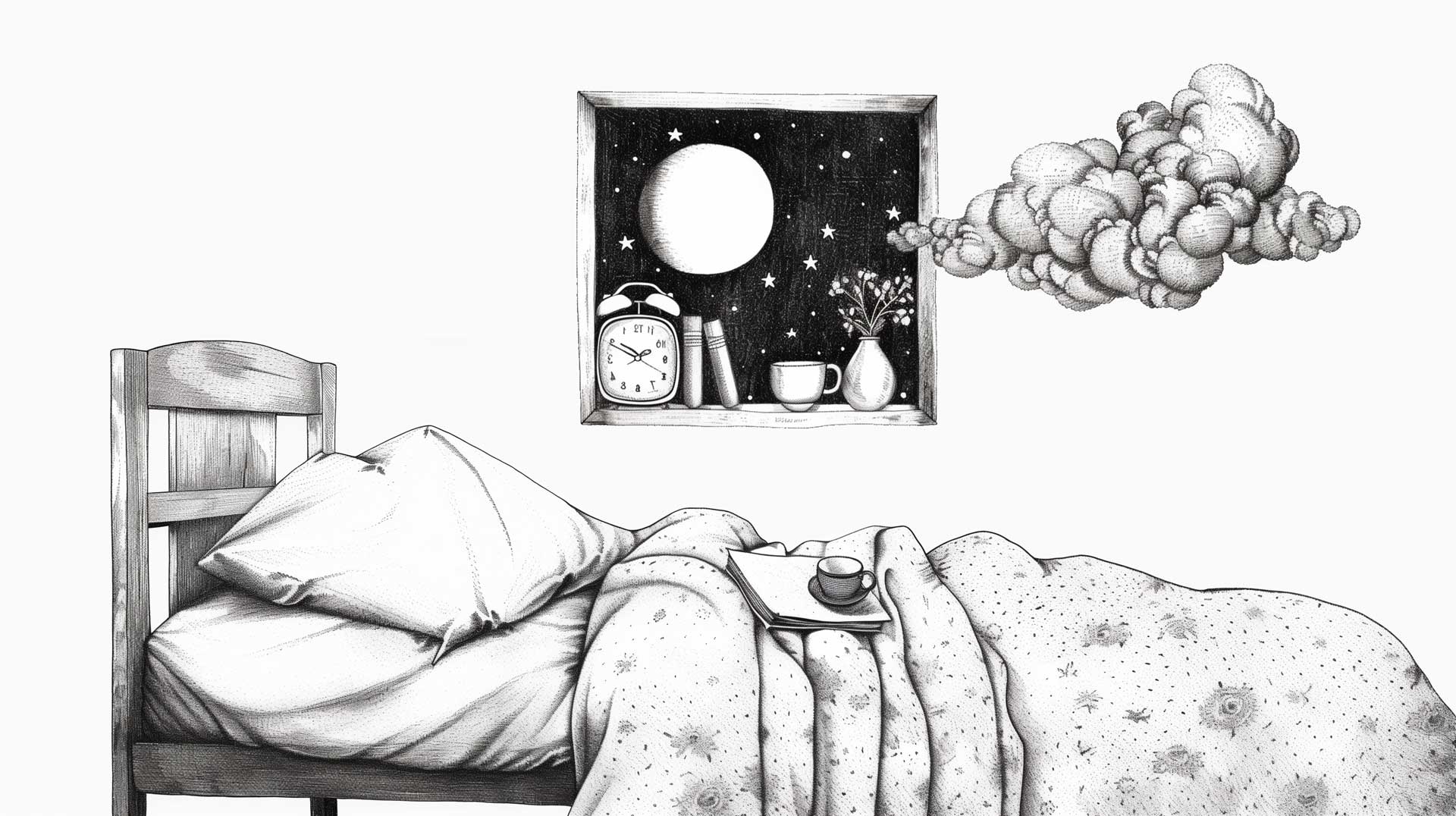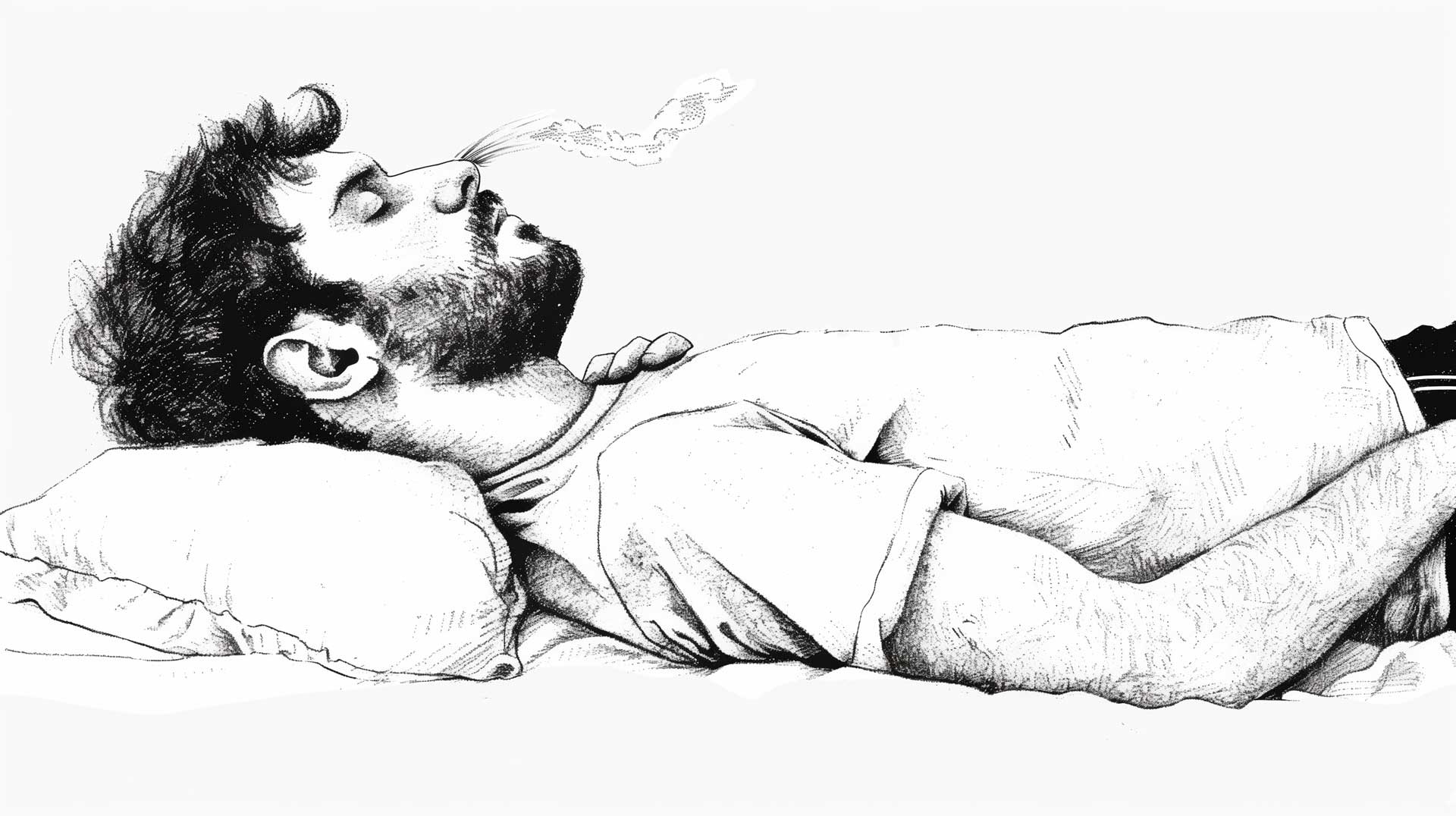No matter if you’re on Vacation, staying at a Friends place or even moved to a new home, chances are high your sleep quality is affected. For some it might be a positive for some a negative effect. If you ever asked yourself, why can’t I sleep in a new environment? or why do I sleep better in different places? Then stay with us.
We will answer all your questions and give you tips to get better sleep even in new environments. So if you have the question of how do you fall asleep in a different environment stay with us
In this article we will cover:
- Environmetal factors that influence sleep quality
- Other effect in new places that influence sleep quality
- Reasons you might sleep better in new places
- Reasons you might sleep worse in new places
- Tips to improve your sleep in a new environment
What Environmental Factors Affect Our Sleep?
Sleeping in a new place feels different and often your sleep quality is going to be different. Environmental Factors are one part of the equation influencing that. Here are a few environmental factors that typically influence sleep:
- Noise Levels: Unfamiliar noises can disrupt sleep cycles. Even minor variations in background noise can wake you or prevent deep sleep.
- Lighting: Exposure to different lighting, especially blue light from screens, can interfere with melatonin production, making it harder to fall asleep.
- Temperature and Humidity: An environment that’s too hot, cold, or humid can make it difficult to sleep well.
- Bedding and Mattresses: Comfort preferences vary widely; a mattress that’s perfect for one might be uncomfortable for another.
Understanding these factors can help you mitigate their impact and enhance your sleep quality in new settings.
What other Factors Affect Our Sleep?
The ‚first night effect‘ is a well-documented phenomenon where people experience disturbed sleep during their first night in a new environment. Scientific studies suggest that this effect occurs because our brain remains more alert to protect us from potential threats in unfamiliar surroundings. Here’s what typically happens:
- Increased Alertness: Half of the brain remains more awake, leading to lighter sleep and more frequent awakenings. This is commonly observed in marine animals and some birds, allowing them to rest one side of their brain while the other remains alert to potential threats.
- Disrupted Sleep Architecture: The first night effect can also lead to alterations in your normal sleep architecture, particularly affecting the amount of REM (Rapid Eye Movement) sleep you get. REM sleep is important because it plays a critical role in Memory Consolidation and Emotional Regulation.
- Variation in Heart Rate: The increase in alertness and the associated stress of a new sleeping environment can influence autonomic nervous system activity, which controls involuntary bodily functions, including heart rate.
Why Do I Sleep Better in a Hotel or New Place?
Not everyone experiences negative effects from new environments. In fact, some people find they sleep better in a hotel or a different place, thanks to:
- Luxurious Settings: Hotels typically invest in high-quality bedding which includes premium mattresses, plush pillows, and luxurious linens, all designed to provide superior comfort. Additionally, many hotels maintain control over the environment in each room, for example with an AC to adjust the room temperature as wished.
- Relaxation Factor: Being in a new environment, especially during vacations, can psychologically distance you from your everyday stresses and responsibilities. This mental break can lower stress levels, making it easier to relax and fall asleep.
- Dark and Quiet Rooms: Hotels are often equipped with features aimed at creating an ideal sleeping environment—blackout curtains effectively block out unwanted light, and walls are typically soundproofed to minimize external noise. These settings help to get high quality uninterrupted sleep.
Why Do I Sleep Worse in a Hotel or New Place?
Conversely, many people find sleeping in a new place challenging, those are the common reasons why:
- Stress and Anxiety: Stress about traveling or the newness of the environment as mentioned above can hinder sleep.
- Unfamiliar Noises: Even the slightest unfamiliar sound can wake you up or keep you from falling asleep since your brain is more active.
- Environmental Controls: Inability to control room temperature or poor bedding can disrupt sleep. As a good hotel Environment can improve your sleep quality a bad one can ruin it. If the place you choose to stay in did not invest in their guests sleep quality this can have a big influence on your sleep.
What Can You Do to Sleep Better in a new Environment?
Adjusting Your Environment
If your sleep environment is not optimal (dark, quiet and cold) the following Tips will help you. To promote better sleep, consider the following adjustments:
- Control Light and Noise: Use earplugs and an eye mask to block out unfamiliar sounds and light.
- Set an Ideal Temperature: If possible, adjust the room temperature to your preference, typically between 65-72 degrees Fahrenheit.
Tricking Your Brain
Help your brain perceive a new environment as safe and familiar by:
- Bringing Reminders of Home: Photos, your own toiletries, or even a favorite book can help.
- Using Scents: A familiar scent, like a small bottle of your usual room spray, can be comforting.
Staying with Your Bedtime Routines
Consistency is key to adapting to a new sleep environment:
- Stick to Your Routine: Try to maintain your usual bedtime routine as much as possible.
- Relax Before Bed: Engage in calming activities like reading or meditating before bed.
- Avoid Stimulants: Minimize caffeine and screen time in the hours leading up to sleep.
Conclusion
Adapting to a new sleeping environment can be challenging, but with the right strategies, you can transform any space into a restful retreat. By understanding the factors that affect sleep and employing simple adjustments, you can ensure high-quality sleep—no matter where life takes you.



